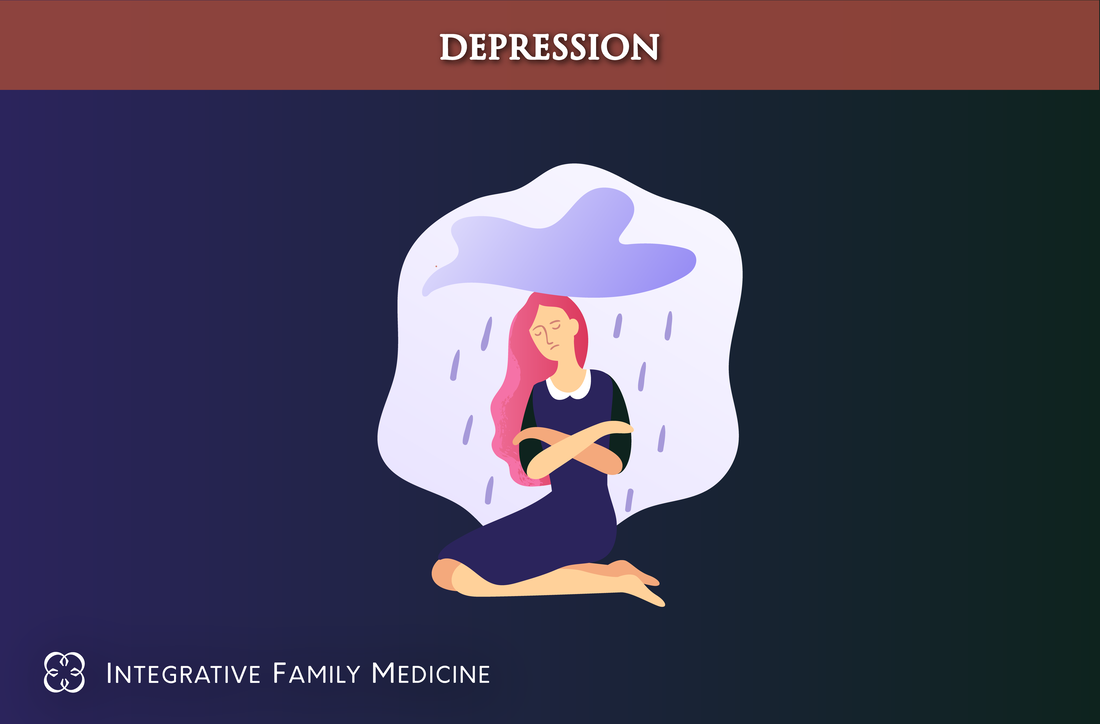|
Read Part 1 here: (https://www.integrativemediowa.com/blog/mental-health-common-forms-of-mental-distress-part-1) Let me start by saying that I tend to stay away from diagnosis, judgement and labels as much as possible in my practice. I see it more like a continuum of health that can range from a person flourishing, to low grade mental distress like low mood or mild anxiety, all the way to severe distress such as suicidal ideation. Our mental health is much more complex than slapping a diagnosis on a set of symptoms and throwing some medication into the body. Our body-mind connection is infinitely more complex than that, no matter how badly some of us wish that a simple pill would solve all of our problems. Don't get me wrong, medication can be an incredible, life-changing tool. I prescribe regularly for my clients if necessary, however, I’m just trying to make the point that our body and minds are always entangled in ways we don’t fully understand, and often, it takes more than just pills to truly heal mental distress. While depression is commonly treated with talk therapy and medication management, I believe there are well over hundreds of ways to heal and move beyond what may traditionally be described as depression, and I am open to exploring any and all possible treatments supported by evidence-based research. Assessing individuals from a holistic approach allows for the opportunity to address any and all areas of a person's life that may be contributing to mental distress or depression. Possible treatments can target lifestyle, body, mind or spirituality. A typical plan may include support for any of the following areas: relationships, sleep, habits, exercise, nutrition, gut-brain axis, inflammation, examination of beliefs, and metabolic regulation among others. By Justin, DNP, ARNP, PMHNP-BC
0 Comments
Your comment will be posted after it is approved.
Leave a Reply. |
Blog Info
Archives
June 2024
Categories
All
|
|
Visit our Locations
IFM | West Des Moines 475 S. 50th St., Suite 600 West Des Moines, IA, 50265 *Temporarily Closed* IFM | Ankeny 207 NE Delaware Ave. Suite 20 Ankeny, IA 50021 |
Office HoursMonday 9:00 a.m. - 5:00 p.m. Tuesday 9:00 a.m. - 5:00 p.m. Wednesday 9:00 a.m. - 5:00 p.m. Thursday 9:00 a.m. - 5:00 p.m. Friday by appointment. Sat & Sun Closed |
© 2024 Integrative Family Medicine of Iowa, PLLC.
All rights reserved.
All rights reserved.



 RSS Feed
RSS Feed

